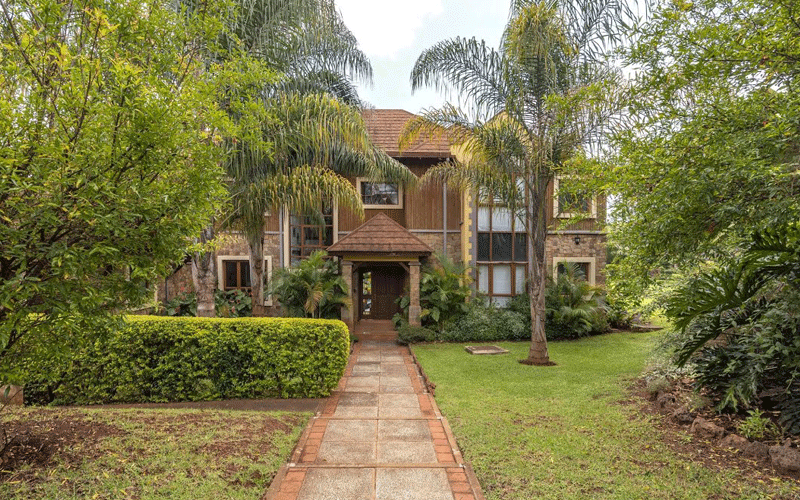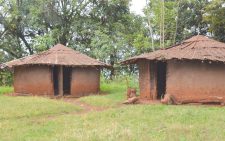Yes, you can mint cash from your idle village mansion

As the bells chimed in hailing the Noel festivities last year, many urban-based Kenyans resorted to the habitual upcountry exodus to spend the holiday with family and friends.
Some have built majestic homes back in the village, which provide temporary residence for their families over the festivities, after which these regal houses are put under lock and key pending the next year’s Christmas season.
But what motivates a person to commit their hard-earned cash to a house that they only use for a small fraction of the year? Is this a worthwhile investment?
“It is true that a lot of Kenyans have built luxury homes back in their rural areas, for different reasons,” says Samson Mathu, the CEO of Sky Plus Agencies, a real estate consultancy firm.
“Some have built the houses and left them to their parents, some have built them just for their own luxury when they travel home, others have built these houses in readiness for retirement,” he says.
Cultural attachment to one’s rural roots appears to be a strong motivation for constructing an imposing mansion in the village despite the limited occupancy.
For some people, the rural house is a statement of accomplishment, a stamp of one’s financial power in the public eye, a tangible and visible mark of progress in life.
One could be splashing thousands in rent to a landlord in the city, but without building that home in the village, society might still consider you an underachiever.
“It doesn’t make economic sense,” Fidelis Wanalwenge, a Real Estate Research Assistant at Cytonn Investment says.
“Most Kenyans are motivated by culture when making the decision to build in their rural homes ”.
The compulsion to have a house in the village is so great that many people go to great lengths just to be seen to have a house, however humble the structure.
“It’s societal pressure,” she offers, adding, “In some parts of the country, in the event that someone dies before building a home, a structure is usually erected just to symbolise a home for the person before burial”.
Cultural correctness
And so magnificent and capital intensive homes continue to be put up in the villages, most of them to provide a transitory abode over the holidays, and provide some much needed cultural correctness to the owners.
A lot of the houses are fully furnished, which translates to an additional cost.
Speaking to Boma, Dr Bitange Ndemo who has written extensively on these rural investments argues that these buildings translate to millions of money that could have been committed to more profitable ventures. He has termed these houses as “dead capital”.
He says that this problem assailed many European countries for many years, but they resolved it by “urbanising” the rural. “We need to urbanise rural areas,” he urges. “This was what Europe did.
They had similar problems. The rich people used to own land, and they started giving to the poor, and then land utilisation became a problem”.
He says it’s time for the country to hold a conversation around rural urbanisation.
There is a lot of subdivision of land in the country, which leads to lower productivity. The public ought to be steered towards better and more sustainable use of land.
“We need to discuss rural urbanisation,” Ndemo says. “If I put up a flat in rural Kisii, for example, I can furnish it well and use it as an Airbnb (an online marketplace that connects people who want to rent out their homes with people who are looking for accommodations in that locale).
And so, if my younger brother who has not built goes there, he can pay me, say, Sh1,000 to stay there,” he poses.
He explains that home owners can also rent out their houses to professionals who go to their region for work, thus creating value for their properties.
In addition to the stately mansions, there are shops and business premises in the village, constructed at a fortune by urbanites who felt a strong urge to invest back in the village, but whose revenues never get to justify the investments.
And the amounts of money splashed on these dead investments are staggering.
Dormant shopping complexes
“Many of people had a chance to buy a house in Nairobi, but they went to build shopping complexes in the village.
From the day they finished constructing these shopping spaces, there has never been a tenant.
If you total such investments in the whole country, it was estimated at around US$80 billion (Sh8.7 quadrallion), which we buried in the soil.
It doesn’t bring any value, but people would brag that I have a shop. Nobody rents it, nobody uses it, nobody does anything with it, and now in addition to that, we are adding mansions!” he exclaims.
It would help to sensitise the public on the futility of such unrewarding investments in the village.
“We need a campaign to educate the people”.
Mathu agrees that some owners of the rural houses could consider converting them into holiday homes, to help reap greater value throughout the year.
A holiday home is a good idea because it helps boost income, he says, while improving the value of land.
It also creates employment to locals, attracts development from government and non-governmental organisations and promotes local tourism.
He adds that the success of this investment depends on a number of factors. For starters, an investor should ask himself or herself if the house is close to a tourist attraction.
“Also, is it strategically located to tap from travellers and other regions or fully dependent on people from the community around?
You should also ask yourself what is unique about the luxury home so that it sets it apart?
And if it is just for rent, that would lead to serious rethinking because rental income in rural areas isn’t as high as more developed areas,” says Mathu.
He adds that, following the Covid-19 pandemic, many people have retreated to the villages, but they have only gone there to cut on costs.












